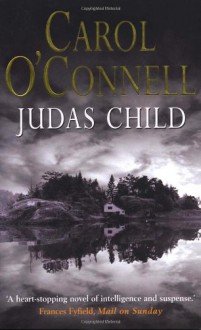Readers familiar with Mallory, the intriguing and original heroine of O'Connell's four previous suspense novels, will recognize familiar themes of loss and abandonment in the brilliant, enigmatic forensic psychologist Ali Cray, whose scarred face only hints at the emotional residue of a childhood...
show more
Readers familiar with Mallory, the intriguing and original heroine of O'Connell's four previous suspense novels, will recognize familiar themes of loss and abandonment in the brilliant, enigmatic forensic psychologist Ali Cray, whose scarred face only hints at the emotional residue of a childhood trauma. Ali ties the mysterious disappearance of two young girls to the rape and murder long ago of Susan Kendall, the twin sister of a small-town New York policeman, Rouge. Realizing that the priest who was convicted of Susan Kendall's murder is probably innocent, Rouge has a personal as well as professional reason for joining Ali in tracking down Susan's killer before he completes the ritual murder of at least one of the missing girls. The protagonists of Judas Child are direct literary descendants of Mallory, the author's earlier creation; like her, their childhood suffering illuminates their adult character and motivation. But while Mallory can only react to the past, Rouge and Ali find in each other a mirror that lights up the dark corners of their past and frees them of the survivor guilt both suffer. O'Connell's same penetrating psychological insight animates the novel's other characters: Dr. Mortimer Cray, Ali's uncle, a psychiatrist who bears the awful burden of knowing who the killer is but is constrained by professional ethics from revealing it; gutsy, clever Sadie Green, the Judas child of the title, and her irritating, annoying, desperate mother, Becca; FBI agent Arnie Pyle, who's dying to know how Ali got her scar; and Father Paul Marie, jailed for 15 years for a crime he may not have committed. The opening sentence grabs the reader, and doesn't let go till the last page. In her skilled rendering of psychological suspense, O'Connell is on a par with Barbara Vine and Frances Fyfield; like Jonathan Kellerman, she is also an astute observer of children, especially those who survive the most terrifying youthful traumas and betrayals. Judas Child may be O'Connell's "breakout" book, and it will surely send readers who've just discovered her in search of her backlist while they await her next one. --Jane Adams
show less

